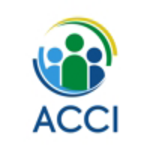
2023 Annual Conference
May 16–18, 2023
Palace Station Hotel & Casino, Las Vegas, NV, US
IMPORTANT NOTICE: The date, time, and room assignment of YOUR presentation is SUBJECT TO CHANGE.
Proposal authors can use this tool to see where they have been placed in the program agenda for an Oral or Poster Session.
Scroll down to search by the Submitter or Author Name, by Date/Time, or by Keywords.
Confirm your place in the schedule by following the instructionss that were emailed to you. Each presentation must have a separate paid registration. Contact the ACCI office immedicately by email at admin@consumerinterests.org to report any conflict, all corrections to the details of the presentation (including author names and the order they are listed as this is how it will be in the final program), or if you have any questions. Please be sure to reference the session title(s), date(s), and time(s) when you contact us.
D1b Family Lifecycle Stage and Consumer Debt among Homeowners and Renters
Short Description
Considering the constant increase of consumer debt and the changes in the compositions of U.S. households, this study examined the factors related to the likelihood of holding consumer debt and the amount of total debt by focusing on the family lifecycle stages of the households. The study analyzed a combined dataset of the 2016 and 2019 Survey of Consumer Finances separately for homeowners and for renters. Descriptive results presented that both the percentage of households holding debt and the mean amount of debt were higher for homeowners than renters, and the largest lifecycle category was empty nest households (35.1%) for homeowners and mature singles (29.3%) for renters. Logistic regressions with the dependent variable on whether a household has any debt or not were conducted respectively on 7,730 homeowners and 4,295 renters. Then, OLS regressions with the dependent variable of the logarithm of the total amount of debt were conducted respectively on 6,374 homeowners with debt and 2,871 renters with debt. Multivariate results indicated that lifecycle stage, liquidity constraint, prudence, attitude toward credit, expectations for the economy, financial characteristics, and socioeconomic status have both similar and different effects on homeowners’ and renters’ likelihood of holding debt and the amount of debt.
Type of presentation
Accepted Oral Presentation